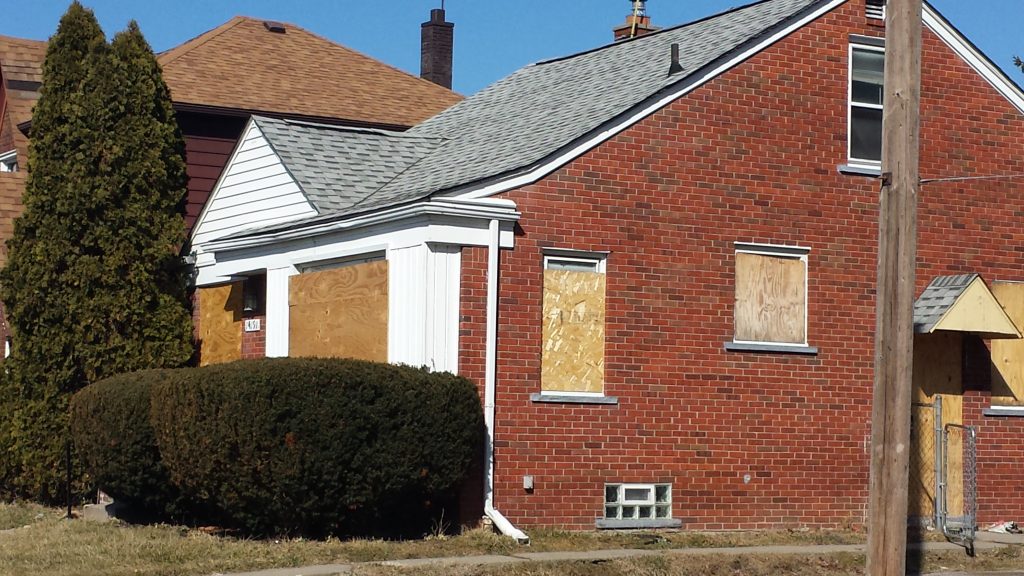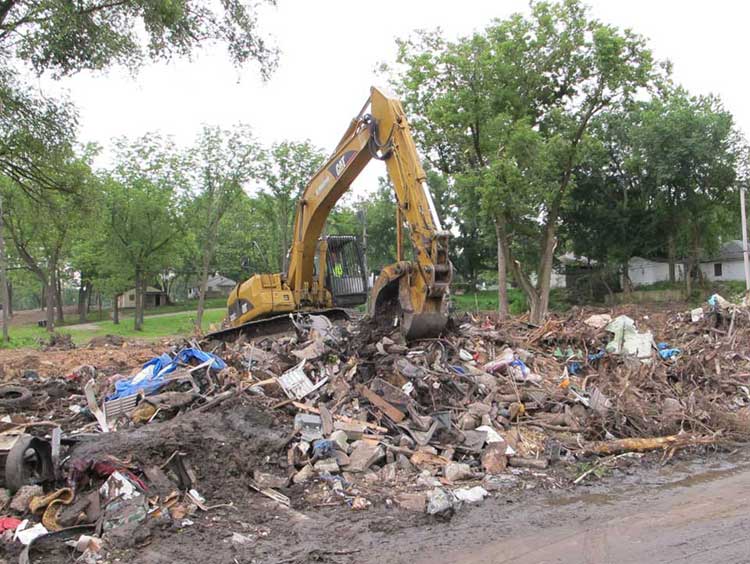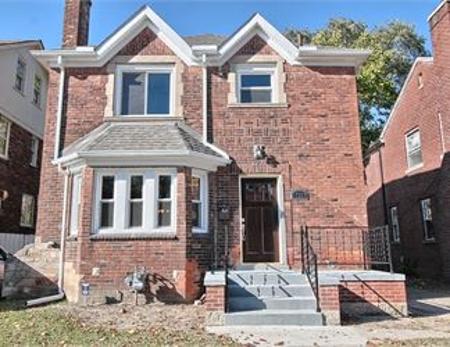Detroit’s Blight Problem…and Solutions
Detroit’s Land Bank aiming at neighborhood blight clean up, home stabilization.

As the one-year anniversary of Detroit’s emergence from bankruptcy approaches, WDET is examining how the city has changed.
Mayor Mike Duggan has made blight removal one of his top priorities since taking office. Before he was elected, the city was tearing down about 25 vacant houses a week—a faster pace than any city in the nation, but not fast enough for Duggan. He turned to Dave Manardo, the head of his construction team at the Detroit Medical Center, where Duggan was CEO before becoming mayor. Duggan says they realized that ramping up demolition would drive up costs. And it has—from an average of $10,000 per house to more than $14,000, according to the mayor’s office.

A recent Detroit Free Press analysis pegged the cost at more than $16,000 per demolition. Duggan defended the increase at a community meeting held at a Midtown church in November. Here’s part of what he said:
“I said look, 25 a week isn’t going to do it,” Duggan says. “We’ve got to do 100, They said to me we can do 150 or 200 a week but it’s going to get a lot more expensive because when you’re only doing a few a week, you can take shortcuts on the environmental side. In many cases they were knocking down houses with asbestos in them and carting them away but when you’re taking down five houses in a neighborhood, you’ve got to take that asbestos out. You can’t have all that stuff floating through the air.”
“The biggest problem turned out to be filling the holes … When you’re knocking down 25 a week you can always find some office park somewhere where you can go get the dirt and fill in the hole for free somewhere nearby. When we started doing 150 and 200 a week, we used up every bit of dirt within 20 miles of Detroit. We had to get trucks.We were going out to Rockwood and Port Huron. The cost got so high at some point that we were driving up the truck prices for the hockey arena deal because we were hiring the trucks away from the hockey arena to go get dirt. We brought 2 million cubic yards of dirt into this city in the last 18 months to fill holes.”
“It’s a lot more expensive to knock down houses fast than to knock them down slow,” Duggan says. “And so Dave Manardo said to me ‘you’re going to take a lot of grief over the cost going up if you want me to knock down 50 houses a week.’ I said people in this city go to bed at night, they’re worried about the house next door to them is going to catch fire on their house and they’re not going to wake up in the morning.”
Duggan says the city has torn down about 7,000 houses in the last 18 months. It has also rehabilitated vacant homes, and sold them through the Detroit Land Bank Authority. Craig Fahle is the Land Bank’s spokesperson. He tells WDET’s Pat Batcheller one of the goals of the “Rehabbed and Ready” program is to repopulate neighborhoods, and increase property values.
Click on the audio player above to hear the conversation. Here’s the transcript of the conversation:
Craig Fahle, Detroit Land Bank Authority: One of the things we realize is, you know, we have about 20,000 houses in our inventory at the Detroit Land Bank Authority. And we want to auction off as many of them as possible. Not everyone is equipped to take on a rehab project like that. So we partnered with Quicken Loans and Home Depot and we started renovating these properties. We put $60-to-$70,000 into some of these. And we put them at a price that we think might build some comps in the neighborhood. So we’ve actually done the rehabilitation of these homes because we wanted to make sure we had some turn-key ready houses for those that do want to move into the city, but don’t necessarily want to fix up the house themselves. We realize there was a market for that. And after an interesting start where we tried to auction the properties, we went to a more traditional model and started using realtors to sell them, and, we’ve been getting offers on the houses. It’s great.
Pat Batcheller: And as you mentioned, it’s about building the value of other homes in these neighborhoods as well.
Fahle: Exactly.
Batcheller: Are they concentrated in a particular part of the city, or just all over?
Fahle: Well, we started out on the west side. We’ve got four neighborhoods that we’re going to be working in to start, and we may be moving around as well, as we move forward in this. That’s one of the things. We’re going to tweak it, we’re going to move around, but right now, we’re over in Bagley, which is sort of in the Livernois-Seven Mile area. We’ve got Crary-St. Mary’s, which is in the Evergreen and McNichols area. We’re going to have Evergreen-Outer Drive, and the College Park neighborhood, which we’re pretty excited about. I think that’s a neighborhood not a lot of people know about, but there’s some beautiful housing stock. And that’s sort of how we chose these neighborhoods. There’s really good brick housing stock, it’s solid, it may have been vacant for a while, but the foundations are great, and these neighborhoods have a lot of people. There’s high occupancy in these neighborhoods. So you’re going to have great neighbors when you move in, quiet streets, it’s nice.

Batcheller: Who’s buying these homes?
Fahle: So far, we’ve been selling them to people that are living in the city, and what’s great about it is that, we’ve converted some former homeowners into renters. And that’s always the goal here, is to get more people into houses that they own, right now. Because as we have seen, because of some of our other efforts in the city, property values are starting to go up in the neighborhoods in the city of Detroit for the first time in a long time, at a rate that is actually going to catch the city up with the suburbs faster if we keep going at this rate, which is fantastic. So property’s never going to be cheaper in Detroit than it is right now. And it’s a great opportunity. A lot of people have been paying rent for a lot of years. You can get a mortgage on some of these houses for less than you pay in rent, and that includes your taxes and insurance.
Batcheller: How does this program fit in to the Land Bank’s overall mission of reducing blight in the city of Detroit?
Fahle: Well, I mean, it fits in perfectly because we’re rehabbing the houses, and we’re getting them occupied. That’s the goal of our programs. For the houses that we can salvage, we want them occupied. We want them fixed up. We want them to be an asset to the neighborhood and not a detraction, which many of these vacant houses have been. We get complaints about vacant properties all over the city all the time. People think they’re dangerous—potentially dangerous. Maybe somebody’s broken in, scrappers maybe have gotten to them. As soon as you get somebody in that house, that stuff stops. So, it’s really, really important that we do that. That’s why we auction off the properties at the thousand-dollar level each day. The goal is to get these properties occupied. Give somebody an opportunity to own their own home.
The Detroit Land Bank Authority has another program that lets property owners buy vacant side lots from the city. WDET’s J Carlisle Larsen has created a digital feature, with pictures and stories from a few of the people who bought side lots.

